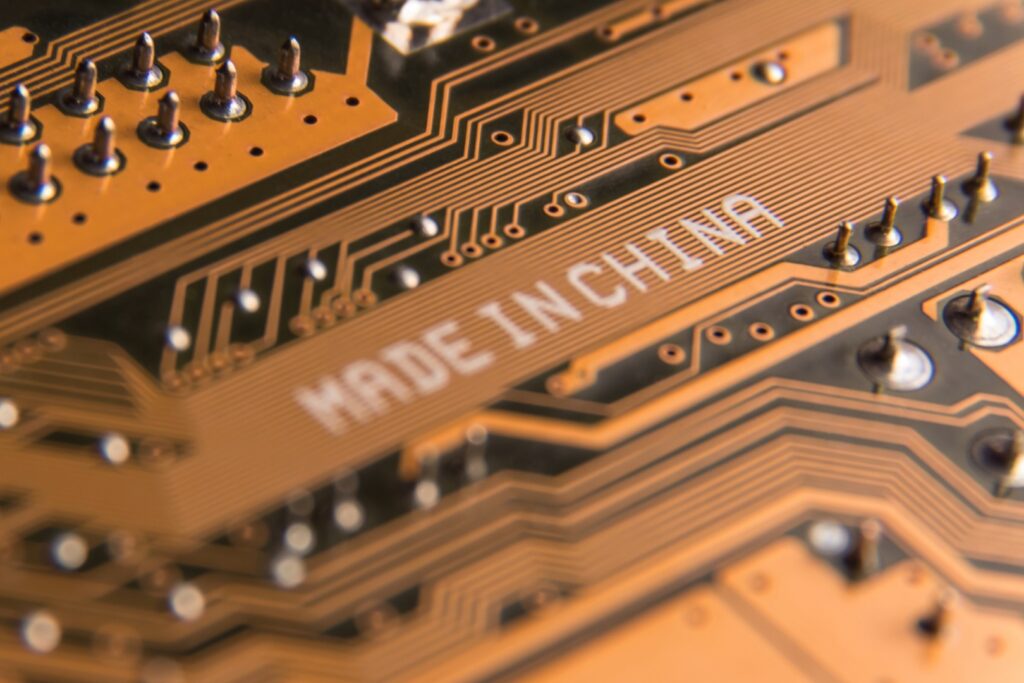
In June 2023, the Promoting and Respecting Economically Vital American Innovation Leadership (PREVAIL) Act was introduced in the Senate and the House (S.2220 and H.R.4370) to address the extraordinary cost and absurdly high patent invalidation rate of the Patent Trial and Appeal Board (PTAB).
The PTAB, created by the America Invents Act of 2011 (AIA), is an administrative tribunal inside the Patent and Trademark Office (USPTO) with the sole function of invalidating issued patents without due process and without a jury.
The PTAB’s kill rate of duly issued patents is 84% of those it fully adjudicates. It is a simple fact that a new technology that cannot be protected from predatory infringement cannot attract investment. As a result, investment in early-stage startups has decreased in the U.S. and increased in China. In just ten years since the creation of the PTAB, China has overtaken the U.S. in 37 of 44 technologies critical to our national security and Big Tech monopolized.
It’s not difficult to see that the PTAB is destroying U.S. innovation and must be fixed.
The corporate lobbying cabal that wrote PREVAIL claims it will fix the PTAB problems, but PREVAIL will not do what they say. Instead, it will have little to no effect on the PTAB’s cost or invalidation rates.
One example of PREVAIL’s bad provisions is its standing provision.
Third-Party Interlopers Hide Hostile Foreign Adversaries
Currently, anyone can petition the PTAB to kill a patent because there is no standing requirement. In district court, standing means that you have been sued or threatened with a suit. In other words, you are a party to a legitimate dispute. This lack of standing has created a third-party interloper free-for-all, spawning many serious problems.
Third-party interlopers, who are not a party to the dispute, petition the PTAB to kill a patent that is already in district court litigation with someone else. Then, they offer to drop the petition if the patent holder pays the interloper. With the PTAB kill rate at 84% and three years of added litigation, many patent holders are unjustly forced to pay. Effectively, this is legalized extortion.
Others short sell shares of a company and then petition the PTAB to kill its key patents. When the stock price drops, the interloper completes the short sale for a tidy profit.
But another much more treacherous third-party interloper has emerged, Unified Patents (Unified). Unified is subscription-based, with over 3,000 corporations paying Unified a monthly fee. In exchange, Unified files Inter Partes Reviews (IPR) petitions asking the PTAB to kill patents that affect its subscribers.
Unified also seeks to settle IPRs with the patent holder. However, any settlement requires a zero-cost license to the patents that extends to all Unified subscribers.
Unified does not restrict its subscribers to U.S. corporations and has never disclosed all subscribers. So, Chinese Communist Party (CCP) controlled corporations are very likely some of Unified’s subscribers.
Because a license to Unified applies to all its subscribers, every Unified subscriber is, in fact, a real party in interest to a Unified filed IPR, including any CCP-controlled multinationals named, or not named, in the IPR.
Under current law, this lack of a standing requirement is a stealth mechanism by which hostile U.S. adversaries, without revealing their identity, can clear U.S. markets of important patents so they can import their products. If such adversaries acted directly (not through a shill like Unified), the PTAB could use its discretionary authority to deny the IPR based on national security or competitiveness concerns.
Obviously, a standing requirement that stops third-party interlopers is essential for U.S. national security.
PREVAIL Fails to Stop Third-Party Interlopers
PREVAIL creates a standing requirement that the corporate lobby proclaims is the same standing requirement as district court.
However, that is not the case. PREVAIL adds confusing language to exempt certain third-party interlopers, like Unified.
Here is the PREVAIL Act’s legislative text (emphasis added):
“(a) Standing and real parties in interest.—Section 311 of title 35, United States Code, is amended by adding at the end the following:
(d) Persons that may petition.—
“(1) DEFINITION.—In this subsection, the term ‘charged with infringement’ means a real and substantial controversy regarding infringement of a patent exists such that the person would have standing to bring a declaratory judgment action in Federal court.
“(2) NECESSARY CONDITIONS.—A person may not file with the Office a petition to institute an inter partes review of a patent unless the person, or a real party in interest or a privy of the person, has been—
“(A) sued for infringement of the patent; or
“(B) charged with infringement of the patent.
(e) Real party in interest.—For purposes of this chapter, a person that, directly or through an affiliate, subsidiary, or proxy, makes a financial contribution to the preparation for, or conduct during, an inter partes review on behalf of a petitioner shall be considered a real party in interest of that petitioner.”.
So, if a person, like Unified, is being paid by someone else who has standing, that person can file a petition by naming a single real party in interest. It’s easy to see how this language effectively preserves and perpetuates Unified’s current capability to act as a third-party interloper hiding their CCP-controlled multinational subscribers from scrutiny.
Under PREVAIL, Unified must disclose only a single real part in interest to show it has standing. But Unified will not be required to disclose a second or any further subscribers who are also real parties in interest.
This gaping hole in PREVAIL’s standing provision grants Unified and its subscriber’s plausible deniability of being a real party in interest. If Unified does not ask subscribers if they are a real party in interest, or if the subscriber does not disclose it to Unified, both can deny knowledge of real party in interest status. Alternatively, Unified could identify a real party in interest that is not a subscriber of Unified and file an IPR disclosing that party, which would enable Unified to never disclose its subscribers as real parties in interest.
PREVAIL allows Unified to omit real parties in interest that are time barred from disclosure in the IPR, thereby skirting and laundering existing law that would otherwise prevent that IPR from being filed. This loophole mocks existing law, and other provisions in PREVAIL itself, intended to protect patent owners from gamesmanship like serial challenges and gang tackling.
Third-Party Interlopers Can Still Hide Hostile Foreign Adversaries
But it also allows unscrupulous third-party IPR filers to mask the identity of CCP-controlled multinationals. And this loophole is easy to game.
It is very likely that multiple CCP-controlled multinationals are among the undisclosed list of 3,000 Unified subscribers. Thus, PREVAIL will not prevent Unified from acting as an agent of a hostile government in a manner that blinds the USPTO from protecting our Republic from the foreign threat.
PREVAIL preserves and perpetuates a stealth mechanism by which hostile U.S. adversaries can clear U.S. markets of important patents so they can import their products.
There is no real change to the current lack of standing.

This Gaping Hole to U.S. National Security is Intentional
The corporate lobby pushing PREVAIL claims that the standing requirement will address third-party petitions, but the clear language of PREVAIL shows that it does not. Instead, it is written such that CCP-controlled multinationals will still be able to hide their identities while attacking and killing U.S. patents.
I’ve been walking the Halls of Congress for over ten years. Corporate lobbyists wrote every bill affecting patents during that time. These corporate lobbyists worked with judiciary committee staff to sell their legislation to lawmakers. Lawmakers are overwhelmed attempting to understand so many varied issues in front of them, so they rely heavily on advice from both corporate lobbyists and judiciary staff.
This causes legislation to be introduced that caters solely to the needs of corporate lobbyists, whose clients do a lot of business in China. May I remind you that China is motivated to destroy U.S. innovation so it can take the global lead.
Under this system, perverse to U.S. national security, corporate lobbyists began destroying U.S. innovation over 20 years ago. They convinced Congress and the courts to gut patent rights, thereby restricting U.S. innovation in ways that no other country, including China, restricts themselves. It should not surprise anyone that China has taken the global lead in innovation and that this could bring the U.S. to a national security disaster and, potentially, losing a war with China.
This is why we are in the midst of a national crisis, with China now leading in 37 or 44 technologies critical to our national security and economic growth.
Corporate lobbyists carefully wrote PREVAIL’s provisions. PREVAIL is not written under a cloud of naivety. These people know what they are doing, and they wrote it intentionally.
The U.S. must fix this broken patent system in the right way if we are going to take the global innovation lead back from China. It is time to stop listening to the corporate lobbying cabal who have led us to a national innovation crisis and to the doorstep of a national security disaster.
It is time to start listening to the people who know innovation… inventors and startups. Stable and predictable patent rights are essential to attract investment in the new technologies they invent. Without that, startups do not start up. But they do start up where patent rights are strong and predictable, like China.
For more than 200 years, the U.S. patent system made America the most innovative country in human history. It just needs to be returned to what it was prior to 2006.
Paul Morinville is Founder and Executive Director of SPARK Innovation. SPARK Innovation strives to create an policy environment where the conception, protection, and commercialization of technologies critical to our economic and national security prosper thereby enabling the United States to take back the global technological lead from China. Paul is an inventor and has been an executive at multiple technology startups including computer hardware, enterprise middleware, video compression software, artificial intelligence, and medical devices, and has licensed patents in the U.S. and China.







Paul,
With the invention of the blockchain, couldn’t we create contracts to include all of one’s intellectual property to validate ownership? all contracts on the blockchain are validated thousands of times over so there can be no dispute as to who had the idea first. is this an option to stop the invalidation of patents?
Hi Rick, the problem is not ownership. Its that the government just invalidates the asset, it vanishes. But there is a company that has been experimenting is block chain with patents.